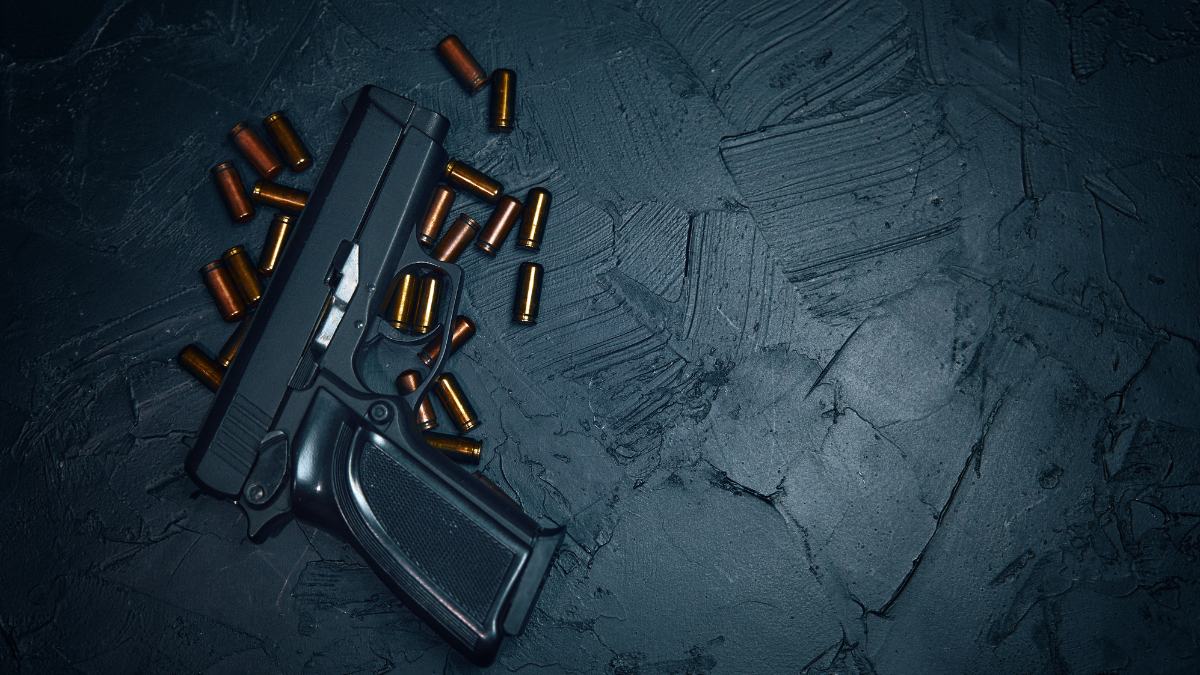Concrete has long been hailed as one of the most durable construction materials, but it is often assumed that it can also provide protection from bullets. But is concrete actually bulletproof?
In this article, we’ll explore the properties of concrete and examine whether it can actually stop bullets. We’ll also look at how other materials compare in terms of bulletproofing, and what the best option is for providing bulletproof protection.
Can Concrete Protect You From Gun Bullets?
The short answer is no, concrete is not bulletproof. Bullets are able to penetrate concrete to varying degrees, depending on the type of bullet and the thickness of the concrete.
However, a thicker layer of concrete can be used to provide a certain amount of protection from bullets.
Concrete is made of a combination of cement, sand, water, and gravel. This mixture is incredibly strong and durable, making it a great choice for building foundations and other structures. But when it comes to defending against bullets, concrete is not a reliable option.
Bullets are made of metal, which is a much harder material than concrete. When a bullet strikes concrete, it can penetrate the surface and cause damage to whatever lies beneath it.
The degree of penetration depends on the type of bullet and the thickness of the concrete. Bullets from handguns, for example, are less likely to penetrate thick concrete than bullets from rifles.
So, while concrete is not bulletproof, it can offer some degree of protection from bullets. To provide a significant level of protection, however, a very thick layer of concrete is needed. This would be impractical for most applications and could be extremely expensive to build.
Exploring the Possibility of Bulletproof Concrete
Bulletproof concrete, also known as ballistic concrete, is an innovative new material that has the potential to revolutionize the construction industry. The concept of bulletproof concrete is simple: it combines concrete with special additives that make it resistant to bullets and other forms of ballistic attack.
The idea of using concrete as a protective material is not new, but the technology has advanced significantly in recent years, making bulletproof concrete a viable option for a variety of applications.
Bulletproof concrete can be used to create walls, floors, doors and other structures that are designed to be impervious to small arms fire and other forms of ballistic attack. The material is typically reinforced with steel or Kevlar fibers, which provide additional strength and protection. It can also be used to create barriers that are designed to contain explosions and other powerful forces.
The potential applications for bulletproof concrete are vast. It can be used to protect homes, businesses, government buildings, military installations, and other structures that are vulnerable to attack. It can also be used in public spaces to create secure areas for people to gather and enjoy their leisure activities. In addition, bulletproof concrete can be used in a variety of other applications, such as providing a safe environment in which to conduct research or to house sensitive materials.
The cost of bulletproof concrete will vary depending on the size and complexity of the project, but it is generally more expensive than traditional concrete. However, the added protection it provides can more than make up for the added expense. In addition, bulletproof concrete is relatively easy to install and requires minimal maintenance.
As the technology continues to improve, the possibilities for bulletproof concrete are sure to expand. It is already being used in a variety of applications, and its uses will likely only increase as technology advances.
FAQs
Q: How thick does concrete need to be to be bulletproof?
A: The thickness of the concrete needed to be bulletproof depends on the kind of bullet being used. Generally, a wall of bulletproof concrete must be at least 15 inches thick in order to be able to stop a standard handgun round.
Q: Can concrete be made bulletproof?
A: Yes, concrete can be made bulletproof by reinforcing it with steel rebar or wire mesh and by increasing the thickness of the concrete.
Q: What other materials are used to make bulletproof concrete?
A: Other materials such as Kevlar, fiberglass, and ceramic plates can also be used to make bulletproof concrete. These materials are usually embedded in the concrete to provide additional protection from bullets.
Conclusion
Concrete can be an effective barrier against bullets and other projectiles, depending on the thickness, density, and quality of the concrete. However, it is not completely bulletproof, and there are many factors that can affect its performance in stopping bullets.
While concrete may not be able to completely stop a high-caliber bullet, it can help slow down the bullet and reduce the amount of damage it causes. Concrete can also be used to protect against other types of threats, such as fire and explosives. Concrete can be a great tool for providing extra security and safety, but it is important to remember that it is not bulletproof.
